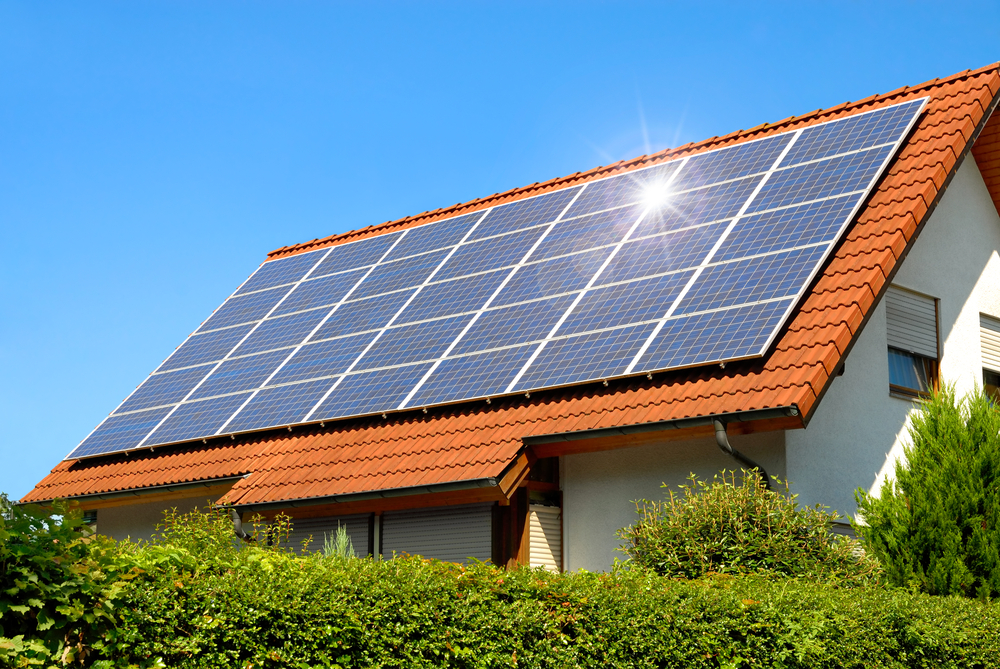How Much Does Solar Increase Home Value?
A recent survey conducted by the National Association of Realtors® revealed that today’s homebuyers are becoming increasingly interested in energy efficient homes. Some homebuyers are even willing to pay more for a home with green features such as solar panels. How much does solar increase a home’s value? Here’s what you need to know:
How Solar Panels Affect Your Home’s Value
Zillow recently analyzed the sales prices of homes that were sold between March 1, 2018 and February 28, 2019. To determine how solar panels affect a home’s value, the researchers looked at the prices of comparable homes with and without these energy efficient features.
According to this study, homes with solar panels sold for 4.1% more on average than similar homes without solar panels. To put this in perspective, consider how adding solar panels could affect the sales price of an average home in the U.S. The median value of a home in the U.S. is $226,300, so adding solar panels to this type of home could increase its value by $9,274.
Homes with solar panels sold for more than homes without solar panels in all metropolitan areas across the country. However, the study showed that the impact that solar panels had on a home’s value varied depending on the location.
The increase in home value was the largest in New York (5.4%), Orlando (4.6%), and San Francisco (4.4%). It was the smallest in Riverside, California, where solar panels only increased a home’s value by 2.7%. This is still a significant increase in home value, though not as high as the increase seen in other metropolitan areas.

Installing Solar Panels: Are They Worth the Cost?
The upfront costs of solar panels are steep. On average, installing solar panels can cost between $16,300 to $32,600 depending on the size of the system. But, don’t let the cost of installation scare you away from making this investment.
How Homeowners Can Make Solar Panels More Affordable
Homeowners who install solar panels are eligible for a federal tax deduction that allows them to deduct up to 30% of the installation cost. Some cities, states, and utility companies also offer cash rebates for new solar panels. The amounts can vary, but in general, a cash rebate from one of these entities can drive the installation price down by about 10-20%. Together, the tax deduction and rebate opportunities drastically reduce the cost of installation.
Furthermore, financing options are available for homeowners who don’t want to pay the installation cost all at once. Many of these loans are similar to home improvement loans, which are issued to help homeowners complete upgrades or renovations. There is also the Fannie Mae HomeStyle Energy mortgage, which homeowners can obtain when purchasing or refinancing a home. This loan is issued to homeowners who want to make energy efficient upgrades, and is combined with the mortgage on the home so homeowners only have to make one payment per month.
If you install solar panels, your home will be primarily powered by solar energy from the sun. You will only use electricity from your local utility company when the sun is not out. As a result, a solar panel system can save you money on your monthly utility bills. It’s estimated that relying on solar panels as opposed to a local utility company can reduce your electricity bill by 50%.
Solar panels protect homeowners from fluctuating markets as well. Utility companies that rely on coal, oil, and natural gas may raise their prices over time. The sun will never send you a bill for using its energy, so you won’t have to worry about the rising cost of electricity if you have solar panels installed on your home.
Do the Math: Why Solar Panels Are A Smart Investment
Deductions, rebates, and financing options make solar panels more affordable and lower utility bills certainly make them more attractive to homeowners. But, are solar panels really a smart investment? Do the math.
The federal tax credit brings the cost of solar panel installation down to an average of $10,836. If you obtain a 10-year loan for $10,836 with a 5% interest rate, your monthly payments will be $114.93.
Solar panel systems can cut electric bills in half. The average electric bill in the U.S. is $111.67, so your new solar panel system could reduce your bill to about $55.84 per month. This means you will spend about $1,379 on solar panel loan payments and save $670.08 on utility bills every year.
Your loan will be paid off after 10 years and $13,790 in payments. By this time, you will have saved $6,700 on utility bills, which leaves a difference of $7,090. But remember, solar panels increase your home’s value by 4.1%, which means you could recoup the $7,090 and make a profit once you sell your home. If you aren’t planning on selling right away, you will still enjoy the benefit of saving $670.08 on electricity bills every year. This savings alone will pay for the remaining $7,090 in 10 years, so you can pocket the extra money you make from the increase in your home’s value when you decide to sell in the future.
The installation cost is high, but that’s no reason to dismiss the idea of solar panels. Over time, solar panels will not only pay for themselves, but also put more money in your pocket.
Protect the Environment—And Your Finances—With Solar Panels
There’s no doubt that solar panels are a smart investment. By installing solar panels, you can reduce your carbon footprint, lower your monthly utility bills, and increase the value of your home!


